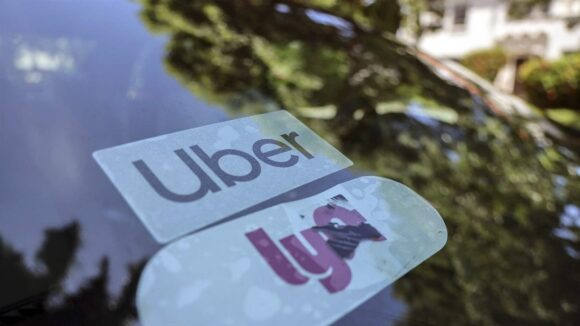The ride-sharing company known as Lyft and its insurers are largely protected from negligence and vicarious liability lawsuits in accidents, thanks to Florida’s 2017 statute governing app-based ride networks, a state appeals court decided Wednesday.
The ruling by Florida’s 3rd District Court of Appeals nails down when the statute applies, highlights how well the law protects Lyft, Uber and other ride-share firms, and underscores the idea that those companies cannot often be held liable for drivers’ actions.
“…A principal is not vicariously liable for the injury caused by the negligence of an independent contractor,” a panel of the court wrote in its opinion in the Abner vs. Lyft appeal. “This is because the party that retained an independent contractor has no control over the way the work is done.”
In 2017, Florida lawmakers approved the Transportation Network Companies (TNC) statute, similar to laws approved in a number of red-leaning states that aimed to establish that ride-share drivers are independent contractors – outside the scope of most employment laws, including workers’ compensation and employer liability requirements.
Just four days after the law took effect, a Lyft car driven by Rolando Cepero collided with a motorcycle in the Miami area. The motorcycle driver, Dexter Franklin, suffered serious neurological injuries. His guardian, Natasha Abner, sued Cepero and Lyft, arguing that Lyft was vicariously liable for the accident and was negligent in hiring Cepero, who had received two traffic citations before he started work as a Lyft driver.
Abner settled with Cepero. A trial court in Miami-Dade County granted summary judgment in favor of Lyft, dismissing the suit against the company. Abner appealed on three points, arguing that the 2017 ride-share liability law should not apply because it was not in effect when Cepero was hired; that the driver did not meet the statute’s definition of an independent contractor; and that Cepero’s traffic citations and bad customer reviews negated the law’s protections for Lyft.
The appellate judges shot down all of the plaintiff’s arguments. The TNC law notes that ride-share firms are not protected from liability if the driver has been convicted within the previous five years. Abner offered evidence only of citations, not convictions.
“In fact, Abner’s evidence of negligent hiring and retention is so sparse that it would fail to create an issue of fact under any reasonable construction of a TNC’s duty to a third party,” 3rd DCA Judge Thomas Logue wrote in the opinion.
The judges also found that the TNC statute applies because it was in effect at the time of the accident. “We apply the law in effect at the time the cause of action accrued,” the court said. “Because the cause of action accrued on the date of the accident, and the statute reflected the law of Florida on that date, we conclude the TNC statute governs this case.”
Abner’s attorneys also argued that Cepero’s contract with Lyft negated the driver’s status as an independent contractor. The agreement barred the driver from acting as a taxi service and accepting “street hails,” which shows that Lyft had control over the driver, Abner’s team argued.
The appeals court disagreed.
“The agreement did not generally prohibit Cepero from ‘engaging in any other occupation or business,'” the opinion reads, citing the driver’s agreement with Lyft. “It merely limited Cepero’s activities while actively providing services as a TNC driver on the Lyft Platform. As a result, when Cepero was not providing services as a driver on the Lyft Platform, he was free to ‘engag[e] in any other occupation or business.'”
Lyft was represented in the appeal by lawyers with Greenberg Traurig and with Rumberger Kirk and Caldwell law firms. Attorneys in the case could not immediately be reached for comment Thursday morning.
Was this article valuable?
Here are more articles you may enjoy.



 Florida’s Commercial Clearinghouse Bill Stirring Up Concerns for Brokers, Regulators
Florida’s Commercial Clearinghouse Bill Stirring Up Concerns for Brokers, Regulators  What Analysts Are Saying About the 2026 P/C Insurance Market
What Analysts Are Saying About the 2026 P/C Insurance Market  Insurance Issue Leaves Some Players Off World Baseball Classic Rosters
Insurance Issue Leaves Some Players Off World Baseball Classic Rosters  AIG Underwriting Income Up 48% in Q4 on North America Commercial
AIG Underwriting Income Up 48% in Q4 on North America Commercial 


